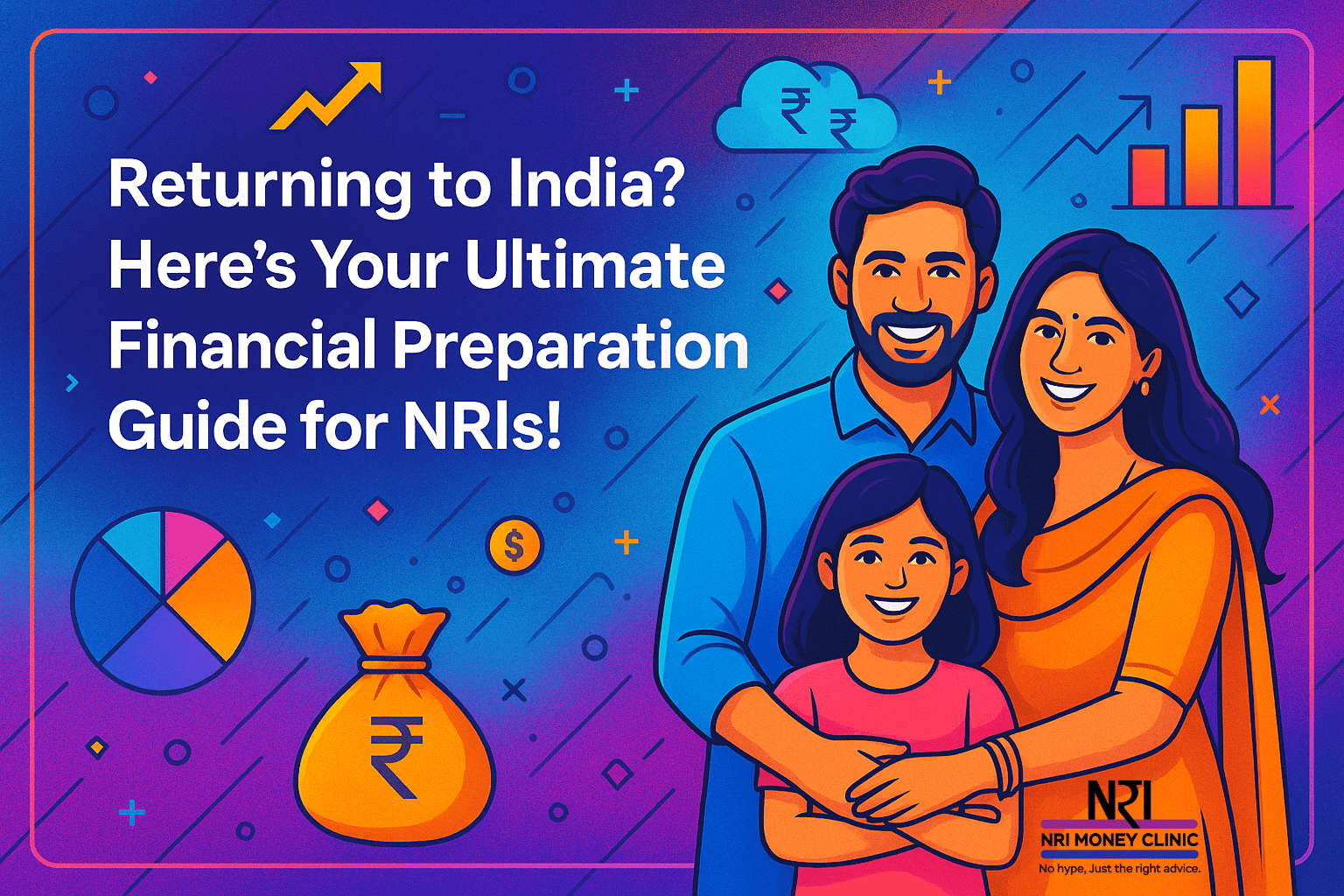As global opportunities expand, more Indians are living abroad than ever before. But while the trend of Indians going overseas continues to grow, so does another: NRIs returning home.
If you’re planning to retire or settle back in India in the next 5 to 12 years, this article is your friendly financial checklist to get it right. Because coming home without a plan? That’s like landing in Mumbai during monsoon—soaked and confused.
1. Start With a Reality Check
Before you even pack your bags, ask yourself: Are you financially ready to return?
Do you have enough funds to retire comfortably?
Will you work again? Start a business? Consult?
How much monthly cash flow will you need?
If you’re unsure, it’s time to revisit your retirement math.
2. Health Insurance: Not Optional!
Employer-provided health cover ends the day you quit your job abroad. And in India, medical costs aren’t what they used to be.
If you’re returning in 1-2 years: Buy a comprehensive health policy now.
If you’re 5-10 years away: Consider a top-up policy now, and switch to full coverage a few years before your return.
Your older self will thank you.
3. Housing: Where Will You Land?
Do you already own a home? Great. But is it where you want to retire?
Planning to shift cities?
Living in a home you bought 20 years ago?
Think about amenities, age of the house, proximity to healthcare, markets, and your social life. If needed, start house-hunting at least 3-4 years before your return.
4. Kids Still Dependent? Plan Ahead.
Many NRIs have school-going or college-age kids. If their education or marriage is on your dime, budget for it now. Don’t let surprise expenses derail your retirement dreams.
5. Cash Flow Clarity
Don’t rely on back-of-the-napkin math. “I’ve got 3 crores in FDs and 7% interest = 21 lakhs income” is flawed.
Interest rates fluctuate.
Taxes bite.
Inflation is real.
Build a proper plan that includes post-tax income, adjusted for cost of living. If numbers aren’t your strong suit, consult a professional.
6. Simplify and Consolidate
Spread too thin? Multiple accounts, random investments, forgotten insurance policies? Now is the time to:
Liquidate non-essential assets.
Consolidate investments.
Organize documents.
Your future self (and your family) will appreciate the simplicity.
7. Prepare for Indian Realities
Returning to India means entering a taxed world:
Interest from NRE FDs becomes taxable.
You’ll need to close or re-designate NRE/NRO accounts.
Global income and foreign assets may be taxable in India after RNOR phase ends.
Understand the Resident but Not Ordinarily Resident (RNOR) status—it can be your tax-saving grace for the first 2–3 years.
8. Exit Smart from Your Host Country
Don’t underestimate this:
Plan your return to align with tax residency rules in both countries.
Are there exit taxes or pension rules?
Can staying a few months longer give you benefits?
A well-timed return can mean thousands in tax savings.
9. Get Compliant—Both Ends!
On return, you’ll need to:
Close NRE/NRO accounts
Reclassify your FDs
Declare foreign assets
Also check your host country’s compliance: taxes, 401(k), social security, pension withdrawals.
10. Build Your Dream Team
You’ll need:
A financial planner to help structure your income and investments
A chartered accountant well-versed in NRI taxation
Your paperwork in order—bank statements, insurance, loan records, and tax filings
Bonus Tip: Tax-Free Income Still Exists!
Explore FCNR deposits (tax-free during RNOR), Gift City investments, and other smart options. Not all retirement income needs to bleed taxes.
Ready to Plan Your Homecoming?
At NRI Money Clinic, we understand the maze of returning to India. That’s why we now offer specialized consultations for returning NRIs—from housing to taxation to cash flow planning.
📲 Just WhatsApp us with the message “Returning NRI Consultation” and we’ll help you prepare the right way, well in advance: https://wa.link/q8rw62
Because coming back home should feel like a celebration—not a tax notice!


